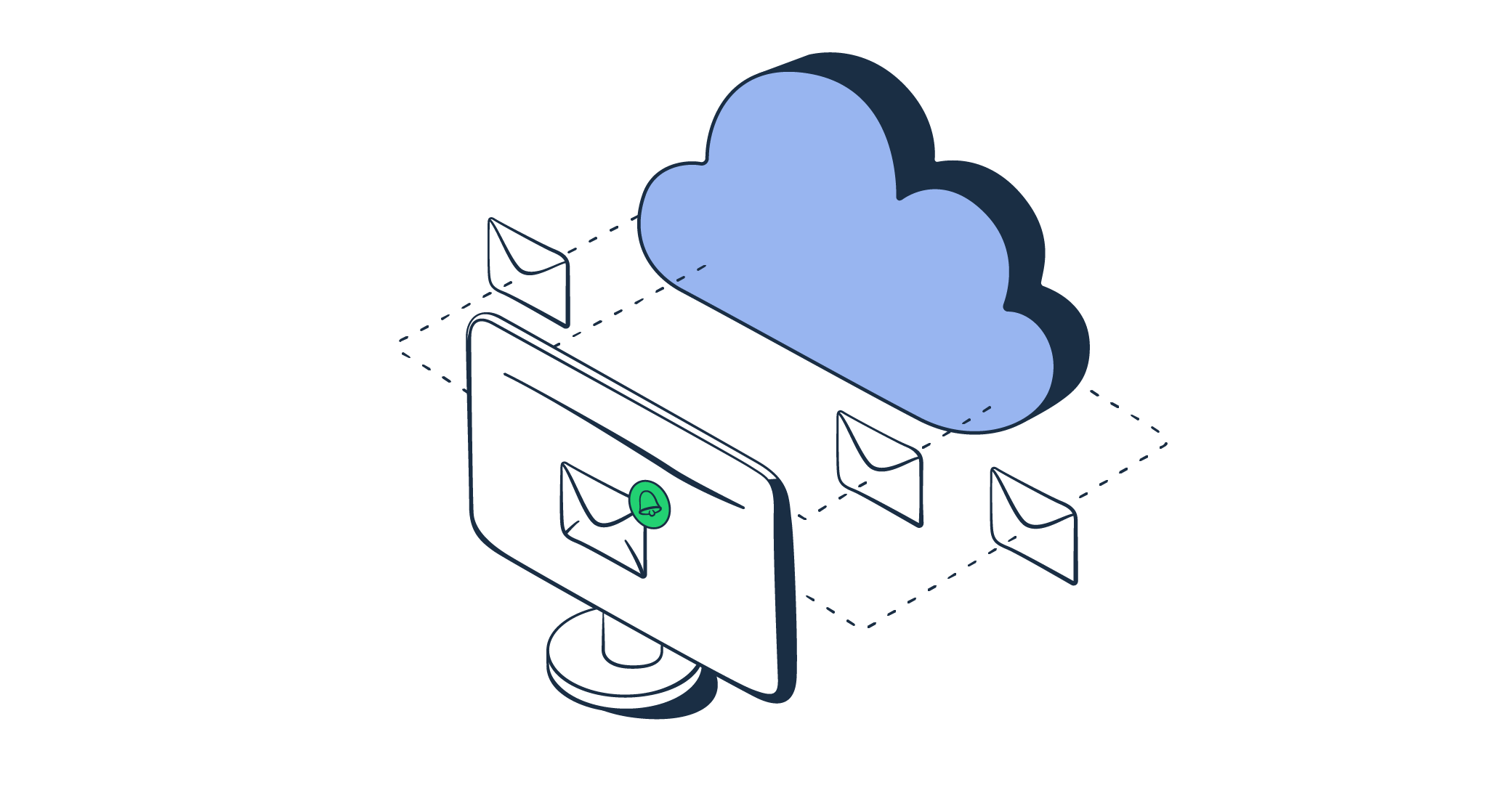Email archiving is a process of storing and indexing email communication in an organized format that allows searching and retrieving. That resolves numerous internal and external cooperative issues, that are related to communication between colleagues and clients.
With an extensive market history, email archiving solutions are complex and can be complicated and expensive to use. Locating the best email archiving solution for your organization can prove challenging, as various services provide various benefits, and so do the needs of each organization.
This article will introduce comprehensively introduce you to email archiving, elaborate on it and aid you in locating the best email archiving service to suit your business needs.
Why Archive Emails?
When managing emails, most people refer to two options – saving or deleting them. Archiving email messages has proven superior to those two options, as it manages your emails in a far more efficient format. How? Archiving email messages both saves and deletes them.
A sender would prefer to delete emails to keep the inbox clean, and ensure everything is read and replied to. A sender who saves emails understands that any email, either read or replied to, could be useful in future. However, archiving removes emails from the inbox, eliminating visual clutter, yet storing them for future use.
Legal Reasons
In most cases, organizations archive due to compliance, which is enforced by legal regulation. Every country has its own regulations on employment, and a significant part of important communication among employers and employees occurs through email. This is particularly important for multinational companies, that have to consider international legislation.
Email audit and electronic discovery are also legal reasons to archive your emails. If an authority requires access to your email, rejection is not an option, especially during legal investigations. This brings us to another reason – litigation protection during lawsuits, where the court might request an email.
Economical Reasons
By archiving emails you reduce storage and licensing costs. This also aids in internal workflow optimization, where an employee will no longer need to contact the IT department for email recovery. Archiving your emails allows an employee to access the archive itself and retrieve the email, otherwise, the retrieval would take hours or even days.
Archiving emails also supports the protection of company data, since no information exchanged via email will be lost upon deletion. And gives an option to freely migrate to another emailing platform, without losing any content on the previous one.
Technical Reasons
Moving your emails to an archive instantly improves your email server performance by unloading data from the exchange server. Leading to de-duplication and optimized back-up, alongside better management of the PTS files.
Why Is Email Archiving Important?
Placing enterprise-wide email archiving solutions and services in your businesses will benefit your internal working structure. As mentioned, it also eliminates the need to contact IT departments or purchase various software and hardware for the ever-increasing email data. Simply, email archiving services offer a long-term solution.
Aside from the three above-mentioned generalized reasons why archiving an email is beneficial, here is a list of specified ones:
- Aids in storage management, and increases the performance of your email server.
- Improves knowledge management and retention, since most internal communication occurs via email, and no information gets lost.
- Essential during litigation and e-discovery, when an email must be recovered via legal requirement, which could date years back.
- As every industry is subject to state and federal regulations, regarding the storage and retention of documents, email archiving aids regulatory compliance.
- Increases IT productivity, as the department will no longer concern itself with storage management.
- Improves email server performance, since the email backlog will remain empty.
- In case of hardware or server damage, email archiving is a solution for disaster recovery.
- Implements audit ability, allowing businesses to monitor email activity for productivity purposes.
- Improves business intelligence, as all communication can be easily accessed and searched for improvement purposes.
- It protects intellectual property, since most emails contain an IP address, and archiving helps to keep those addresses and all related information safe.
- As email archiving provides a streamlined process for email management, it saves money from referring to other services.
Who Needs to Archive Emails?
Businesses that value organised and structured communication must prioritize archiving emails. Businesses that do not have an archiving system in place can experience some of the following issues:
- Inability to send or receive new emails due to an over-encumbered email server.
- Inadequate email record procurement in the event of legal requirement or litigation.
- Inability to procure significant emails after deletion.
Digital communication has drastically advanced over the century, however, email remains irreplaceable. With over 319 billion emails sent daily, identifying the best practices for organizing the inbox is essential for businesses of any scale. This assures the business owners that no critical information is lost, and any valuable communication is secure and accessible through an organised email archive database or software.
Best Email Archiving Practices
With the ever-growing kinds of data, the organizations generate daily, locating the best email archiving solution proves complicated. The following are the three components to help you identify the most efficient and cost-effective email archiving service for your organization:
- Good performance with a centralized repository with easy access to historical data.
- A familiar and intuitive interface for a productive user experience.
- A high-quality and fidelity archive with a guarantee of no data and email loss or leak.
With these three main components in mind, you can refer to the following best practices to maximally utilize the effects of any email archive service:
- Automate the archiving and legal hold processes for a more efficient workflow.
- Assemble a team of every department representative to set retention politics.
- Update the retention politics annually and inform everyone in the company.
These practices will ensure a more efficient archiving process, where the interests of all departments shall regulate each policy. However, investing in the best archiving service is essential to maintain the effectiveness of the practices mentioned above. Most would recommend selecting a could-based email archive, yet which one is better for you and your needs?
On-Premise or Cloud-Based Email Archive?
Traditionally, emails have been archived on-premise, however, cloud-based options are receiving increased popularity. But why might a cloud-based archive be better for most organizations, than an on-premise one?
Aside from the cloud-based option being lower in cost, there are several pros and cons between on-premise and cloud-based email archiving services.
On-Premise Solution
PROS
- Market Stability: the on-premise email archiving services have been around since 2000. This allowed the market to develop and provide archiving services with better email server integration.
- Direct Control: as the on-premise archiving solution is available in the house, you have complete control over the archiving process and direct management over the business-critical data.
- Stable Payment: aside from the initial investment in the hardware, with the on-premise solutions, you are only required to pay an annual maintenance fee, which at times is even offered freely by the vendors.
CONS
- Administrative Resources: the on-premise solution requires various IT infrastructure and administrative resources to manage and maintain the archive efficiently.
- Higher Cost: the initial purchase of the archiving hardware is higher. Due to that reason, the initial on-premise email archiving appliances are considered a capital expenditure.
- Difficult Trial: as the initial implementation takes more finance, time, and effort, testing the solution prior to the purchase is practically impossible.
Cloud-Based Solution
PROS
- Easier Payment: cloud-based services are usually charged on a monthly or yearly basis, which makes budgeting an easier and more convenient process.
- Simple Deployment: Implementing a cloud-based archive solution is quick and requires little to no effort from your end.
- Effortless Maintenance: the cloud-based archiving services are maintained, secured, and regulated by the service provider, leaving you without concern for it.
CONS
- Unstable Charges: cloud-based archiving services charge per inbox, which can constantly alter your costs, depending on the human resource changes in your organization.
- Security Risk: since your cloud-based service might archive your data in another country’s organization, the security of your data will depend on that organization.
- Limited Customization: few cloud-based archiving services offer add-ons for media content or instant messages, which could be important to some organizations.
It is important to review all of these pros and cons before deciding if an on-premise or cloud-based archiving service is best suitable for your organization.
First, understand the size of your organization, cloud-based services tend to be more cost-effective for small or medium-sized organizations. Larger organizations, especially ones that handle legal matters, prefer on-premise archiving solutions for a more secure backup of personal data.
Observing your IT infrastructure and inventory is also essential for the maintenance of on-premise archiving hardware, when the cloud-based options require no similar efforts on your end.
To choose the best email archiving solution, it is essential to understand the regulations your organization must meet.
How To Find Best Email Archiving Services
We already discovered the benefits of email archiving, which allows your organization to improve and secure the internal work structure, and regulate business-critical communications. Now, let us understand how to find the best email archiving service for you exactly.
At first, identify if your organization requires an on-premise or cloud-based email archiving solution. Focus on locating an email archiving service with unlimited storage and a secure cloud. That way, your organization will be able to store unlimited emails and avoid their leakage.
The cost of email archiving services varies, however, we found the average pricing to be from 99$ to 199$. The price depends on the capacity of your human resources in the organization since that determines the number of inboxes linked to your email archiving service. 10 people is the minimum amount for the majority of archiving services, that we have referred to.
Most could-based email archiving services offer 24/7 customer service, and at times even a personal service representative.
To locate the best email archiving service out of all options available on the market, identify the exact needs of your organization. This article discovers all the needs an organization might have, that require email archiving. With that, you will be able to locate the best email archiving service to suit your business needs.
Conclusion
Email archiving services can cause a significant improvement in your internal work processes. As seen in the article, archiving emails can resolve issues of storage management, retention, knowledge management, litigation, and plenty more.
The world’s leading companies and government agencies use email archiving solutions to improve their email management and storage. This helps them to protect their intellectual property and excel the internal performance.
Do you require email archiving for better knowledge management? Improved IT functionality? Optimal data management? Or for some other reason? And were you more interested in a cloud-based or on-premise email archiving solution? Now you have all the answers you need to locate the best email archiving service for your business needs.
For more info on email management, make sure to check out our YouTube video on the best AI tools for the job:





